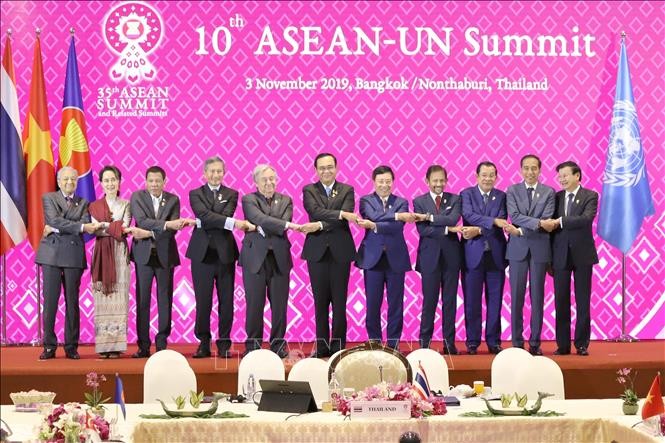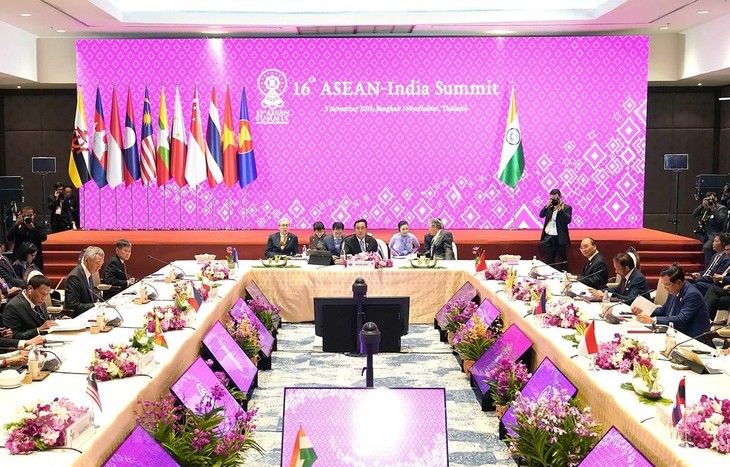(VOVWORLD) -Leaders from the Association of Southeast Asian Nations (ASEAN) and the United Nations (UN) underlined the importance of bilateral cooperation in solving global challenges at the 10th ASEAN-UN Summit in Thailand on Sunday within the framework of the 35th ASEAN Summit and related summits.
 (Source: VNA) (Source: VNA) |
The two sides emphasized the need for cooperation to cope with climate change, natural disasters, rising sea levels, pollution and plastic waste, as well as tackling cross-border crime and terrorism, and promoting sustainable development in the context of rapid and complicated global developments.
Regarding the East Sea, the leaders said unilateral actions that ran counter to international law have been negatively affecting peace, stability, security, safety and freedom of navigation and aviation in the East Sea.
The UN affirmed its support for ASEAN’s viewpoints of solving disputes via dialogue based on international law. The leaders said they believed that having Vietnam as a non-permanent member of the UN Security Council in 2020 will help ASEAN and the UN increase cooperation, contributing to the promotion of peace, security and sustainable development in the region and beyond.
UN Secretary-General Antonio Guterres underlined the importance and central role of ASEAN in the regional architecture, while appreciating the bloc’s achievements in socio-economic development. However, there are still many challenges to address to make sure no one is left behind, he said. The UN chief added that the UN is willing to support ASEAN and hopes the bloc will continue pursuing the SDGs.
 (Photo: VNA) (Photo: VNA) |
The 16th ASEAN-India Summit, which saw the attendance of Indian Prime Minister Narendra Modi, touched upon issues such as terrorism and the need to maintain peace, security and stability in the East Sea. Vijay Thakur Singh, Secretary (East) in the Indian Ministry of External Affairs, told the press that both sides highlighted the convergences of their respective approaches to the Indo-Pacific.
ASEAN leaders spoke of India as a long-term friend and a dynamic partner, and complimented India’s contributions to regional peace and stability.
Both sides noted the importance of promoting rule-based order in the region, including the observance of international law, particularly the 1982 United Nations Convention on the Law of the Sea (UNCLOS).
They also acknowledged India’s leading role in capacity building, particularly in agriculture. They expressed a keen interest to enhance partnerships in the maritime and cyber domains. Other issues tabled at the summit included violent extremism and cyber security.